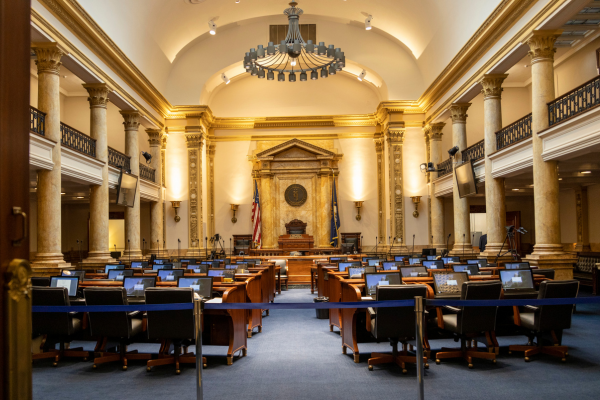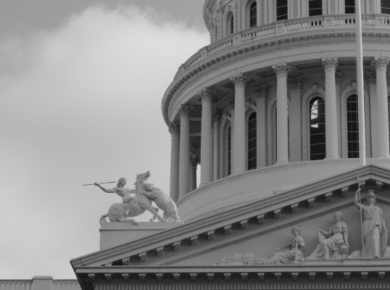Table of Contents
- Data Science Careers in Public Policy: Where Data Meets Decision-Making
- What is Data Science?
- What is Public Policy?
- Where Do These Fields Combine?
- Careers in Public Policy and Data Science
- Frequently Asked Questions (FAQ) All About Public Policy and Data Science
- 1. How can I start my academic journey in Public Policy and Data Science?
- 2. What careers can I pursue with a Master’s Degree in Public Policy and Data Science?
- 3. Is Public Policy and Data Science a high-paying field?
- 4. What bachelor’s degrees can prepare me for this program?
- 5. Where can I study Public Policy and Data Science?
Data Science Careers in Public Policy: Where Data Meets Decision-Making
Data science careers in public policy are becoming essential in today’s data-driven world. Politics and public policy programs equip individuals with the knowledge and skills to shape our world and become leading decision-makers. However, in the era of big data, a strong command of data analysis and management is no longer optional—it is essential. To meet this demand, universities have introduced Data Science and Public Policy programs, an emerging interdisciplinary field that prepares students to leverage data for informed policymaking.
As a relatively new field, only a limited number of universities offer this specialized program. Bay Atlantic University is proud to be among the only 10 universities in the U.S. offering the M.S. in Data Science and Public Policy, a program designed to equip students with the analytical and strategic skills required for impactful data science careers in public policy.
What is Data Science?
Think of data science as the power to turn raw numbers into real-world insights. It’s all about collecting, analyzing, and making sense of data to predict trends, solve problems, and support decision-making. Whether it’s tracking public health patterns, analyzing economic trends, or optimizing government services, data science helps transform raw data into actionable insights.
By using statistical models, machine learning algorithms, and predictive analytics, data scientists uncover patterns and trends that drive informed decision-making. From improving healthcare outcomes to enhancing business efficiency, data science is a powerful tool for solving real-world problems through data-driven strategies.
What is Public Policy?
Public Policy is all about shaping the rules that govern society. From healthcare and education to climate change and economic growth, public policy experts work to create solutions that improve people’s lives. It’s a mix of research, strategy, and decision-making, ensuring that governments and organizations make choices based on facts, not just opinions.
Where Do These Fields Combine?
Public policy and data science go hand in hand—because smart decisions need solid data. By using data science in public policy, policymakers can predict economic shifts, measure the impact of new laws, and even prevent crises before they happen. Whether it’s designing better city infrastructure, improving public health strategies, or making governments more efficient, combining these fields leads to better policies, smarter governance, and real change. It can be said that data science careers in public policy bridge the gap between raw data and actionable governance, leading to more effective decision-making.
Careers in Public Policy and Data Science
A degree in Public Policy and Data Science uniquely blends political science with STEM, equipping graduates with both analytical and policy-driven expertise. This interdisciplinary program opens doors to diverse career paths across government, corporate, and nonprofit sectors. Whether you aspire to work in government agencies, political institutions, consulting firms, tech companies, or research organizations, this degree provides the technical skills of data science alongside the strategic and decision-making abilities of public policy—making it a powerful combination for shaping impactful policies in a data-driven world.
Here are some top data science careers in public policy for graduates:
Policy Analyst
As a policy analyst, you will work in the public sector, using data to assess, develop, and refine government policies. By analyzing economic, social, and political trends, policy analysts provide evidence-based recommendations to improve government efficiency, optimize resource allocation, and address societal challenges. This role is highly sought after in government agencies, think tanks, and advocacy organizations.
Government Data Scientist
Data is at the core of modern governance. As a government data scientist, you will work with public institutions to analyze vast datasets, extract meaningful insights, and support data-driven policymaking. This role exists across multiple government departments, including public health, national security, transportation, and urban planning. Professionals in this field ensure that policies and initiatives are backed by accurate data, leading to more effective and efficient governance.
CSR Analyst
With corporations increasingly prioritizing ethical, social, and environmental responsibility, CSR analysts are in high demand. In this role, you will assess and report on business operations across departments such as human resources, supply chain, and sustainability, ensuring alignment with corporate social responsibility (CSR) commitments and public expectations. CSR analysts play a key role in helping companies enhance their reputation, sustainability efforts, and corporate ethics.
Humanitarian Data Analyst
In humanitarian organizations, data-driven decision-making is essential for crisis response, disaster management, and resource allocation. Humanitarian data analysts work with nonprofits, NGOs, and international organizations such as the United Nations and the Red Cross, using data to optimize aid distribution, assess disaster impact, and improve relief efforts. This role requires expertise in data visualization, geospatial analysis, and predictive modeling.
Risk Analyst
Risk analysts assess potential financial, operational, and strategic risks using quantitative and qualitative data analysis. In both public and private sectors, they evaluate economic policies, financial investments, and corporate strategies to mitigate potential risks. Risk analysts are often employed by banks, government agencies, multinational corporations, and insurance companies, ensuring that decision-makers have the necessary insights to avoid costly mistakes and maintain stability.
✅ Request information on BAU's programs TODAY!
Data Journalist
Data journalism combines investigative reporting with data analysis, allowing journalists to uncover trends, patterns, and hidden insights from complex datasets. Data journalists work in news agencies, media outlets, and research institutes, using statistics, visualization tools, and coding to transform raw data into compelling stories. In an era of misinformation, this career is essential for ensuring transparency and accountability in both public policy and corporate decision-making.
Frequently Asked Questions (FAQ) All About Public Policy and Data Science
1. How can I start my academic journey in Public Policy and Data Science?
If you’re interested in combining policy expertise with data analytics, the first step is finding the right academic program. Many universities offer degrees in Public Policy, Data Science, or a combination of both. Look for programs that emphasize quantitative analysis, policy evaluation, and data-driven decision-making. Bay Atlantic University (BAU) is one of the 10 universities in the U.S. offering the MS Data Science and Public Policy program.
2. What careers can I pursue with a Master’s Degree in Public Policy and Data Science?
This degree prepares you for roles in government agencies, international organizations, corporations, nonprofits, and think tanks. Some of the most in-demand data science careers in public policy include policy analyst, government data scientist, CSR analyst, public policy consultant, risk analyst, and data journalist. These professionals use data to shape policies, manage risks, and enhance public sector efficiency.
3. Is Public Policy and Data Science a high-paying field?
Yes, professionals in this field earn competitive salaries due to the high demand for data-driven decision-making. Entry-level positions typically start at $60,000–$80,000 per year, with mid-career professionals earning well over $100,000 annually, depending on their specialization and location.
4. What bachelor’s degrees can prepare me for this program?
While some universities offer direct undergraduate programs in Public Policy and Data Science, many students enter the field with degrees in political science, statistics, computer science, mathematics, international relations, or business administration. A strong foundation in data analysis, research methods, and policy evaluation will help you succeed in this field.
5. Where can I study Public Policy and Data Science?
As a growing but specialized field, only a few universities offer dedicated programs. Among the top 10 universities in the U.S. offering this program is Bay Atlantic University (BAU). Located in Washington, D.C., BAU provides students with expert faculty, hands-on learning opportunities, and access to policy professionals and real-world data projects.













